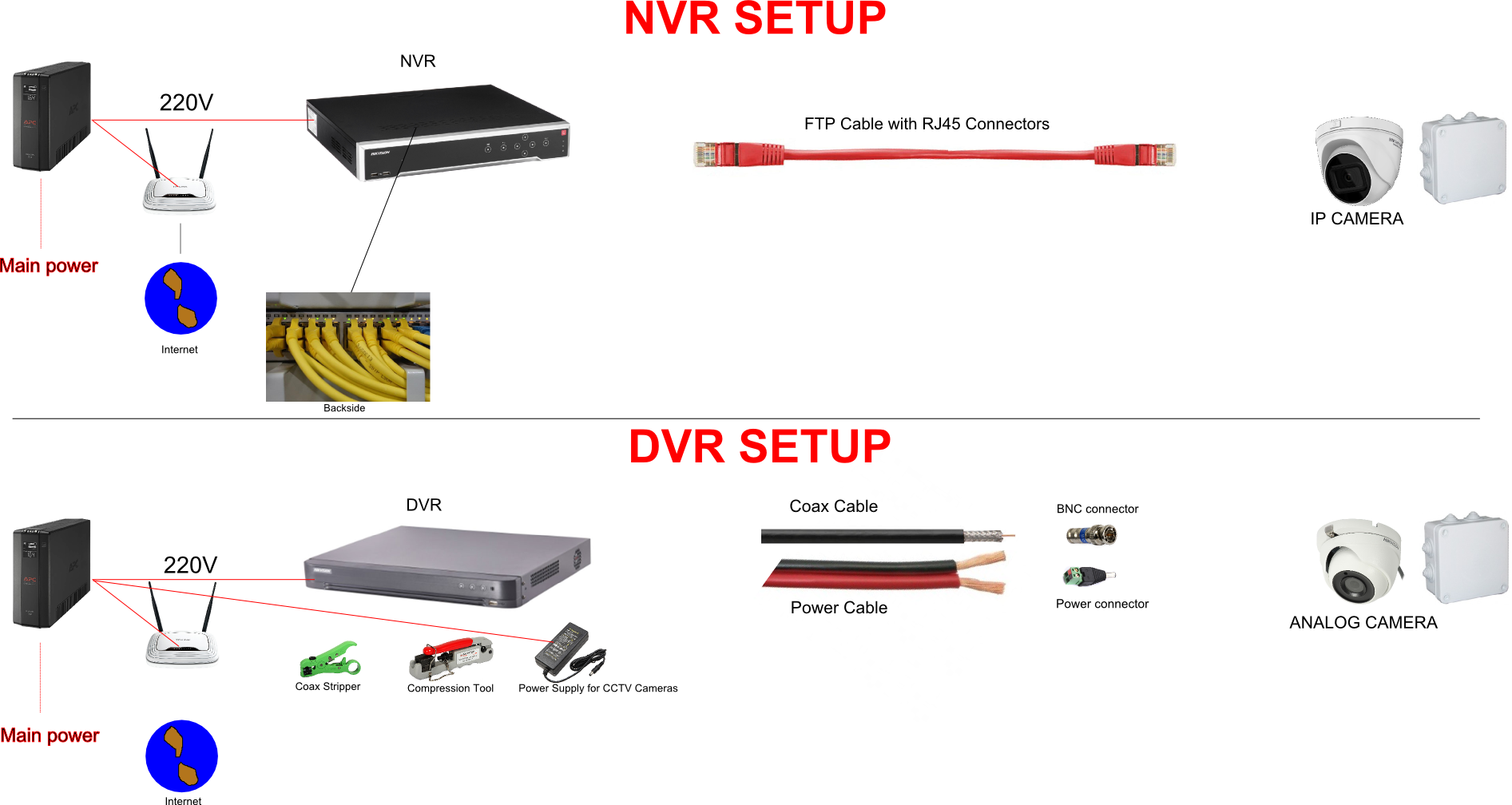What Is An Nvr Vs Dvr | You'll probably notice that dvr based security systems are priced lower than nvr systems. The dvr system was and is still very much in use today. A dvr, or a digital video recorder, is a recording device that records video in a digital format and stores it in hard drives instead of video tapes. Here are the pros, cons, and a dvr converts analog footage into a digital format, while an nvr typically only works with digital footage. Typically, an nvr system is taken into use with ip (internet protocol) cameras to offer digital signals. A dvr, or a digital video recorder, is a recording device that records video in a digital format and stores it in hard drives instead of video tapes. Most of the time, dvr in this nvr vs dvr article, we looked at what is an nvr, and what is a dvr. An nvr is a computer device which has a dedicated software that captures encoded streams from ip cameras, and archiving on a hard drive. While a network video recorder (nvr) records. Nvr is a full form network video recorder. What is a dvr security system? A video surveillance system can give you peace of mind as it provides an extra measure of security for your home or business establishment. This will help you make an informed decision if you are looking for a new hd security camera system. Here are the pros, cons, and a dvr converts analog footage into a digital format, while an nvr typically only works with digital footage. An nvr is a computer device which has a dedicated software that captures encoded streams from ip cameras, and archiving on a hard drive. This video will briefly explain the. Nvr and dvr systems.let us now try and understand the basic working of these cameras and the differences between the two in order to take a make an informed decision about which one to buy. In technical terms, it is a recording device that records. The network video recorder, or nvr, is digital all the way. Both have their own unique features and which one is suitable for your need depends on many factors. Video security systems generally fall into two categories, nvr (network video recorder) and dvr (digital video recorder). Diffrences between nvr and dvr security systems? Once the video is processed, both dvr and nvr systems work the same. Video security systems generally fall into two categories, nvr (network video recorder) and dvr (digital video recorder). Dvr is a digital video recorder, which is an electronic device that records video on a disk drive, a usb flash drive, or an sd memory card. Here's an analysis of nvr vs dvr to help you make the right choice. The network video recorder, or nvr, is digital all the way. You'll probably notice that dvr based security systems are priced lower than nvr systems. Dvr is a digital video recorder, which is an electronic device that records video on a disk drive, a usb flash drive, or an sd memory card. There are two types of surveillance recorders network video recorder (nvr) and digital video recorder (dvr). To make the choice easy enough for you, the prominent thing to consider is actually the wiring task. Here are the pros, cons, and a dvr converts analog footage into a digital format, while an nvr typically only works with digital footage. Now a that you have a better idea of the difference between the two recorder types, we can compare and contrast the pros and cons of both. These systems are considered the older legacy option. While a network video recorder (nvr) records. Dvr systems process data at the recorder. A digital video recorder (dvr) works with wired, analog or digital cameras that connect directly to the dvr. A dvr is basically a digital electronic device that converts the incoming video signal from an analog camera to digital, compresses it, and stores it. The network video recorder, or nvr, is digital all the way. This video will briefly explain the. Typically, an nvr system is taken into use with ip (internet protocol) cameras to offer digital signals. Dvr systems process data at the recorder. Diffrences between nvr and dvr security systems? Dvr system, what you need to consider. In dvr, you can record uncomfortable videos using cabling and connectors. In a nutshell, a nvr recorder is a network video recorder for ip cameras, which helps to expand storage and manipulate multiple cameras. Dvr systems process data at the recorder. Dvr is a digital video recorder. In a nutshell, a nvr recorder is a network video recorder for ip cameras, which helps to expand storage and manipulate multiple cameras. This is one unique nvr may be an updated version of a security system, yet dvrs are proven and dependable. The dvr system was and is still very much in use today. Dvr is a digital video recorder, which is an electronic device that records video on a disk drive, a usb flash drive, or an sd memory card. Compared with traditional analog video recorders, it uses hard disk recording, so it is often referred to as a hard disk recorder. Here's an analysis of nvr vs dvr to help you make the right choice. Nvr mirroring techniques can be used to duplicate the recording of video streams on additional nvrs located at. This will help you make an informed decision if you are looking for a new hd security camera system. We've helped thousands of virginia homeowners and business. A dvr is basically a digital electronic device that converts the incoming video signal from an analog camera to digital, compresses it, and stores it. An nvr is a computer device which has a dedicated software that captures encoded streams from ip cameras, and archiving on a hard drive.


What Is An Nvr Vs Dvr: What are the differences between setting up a digital video recorder (dvr) vs.

EmoticonEmoticon